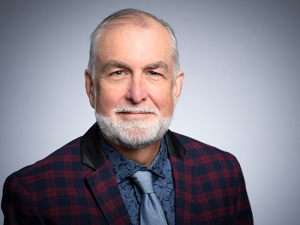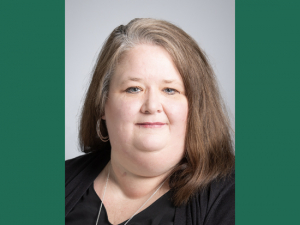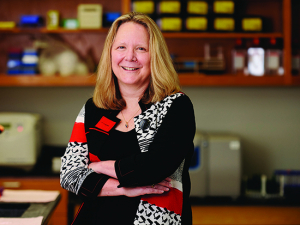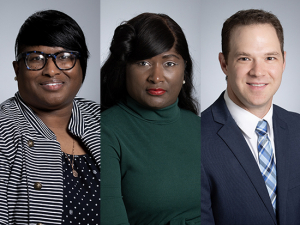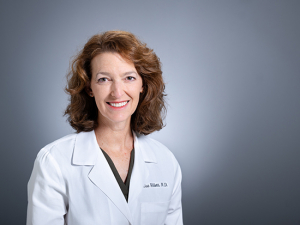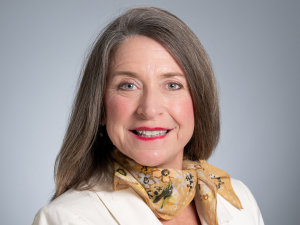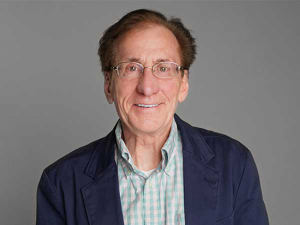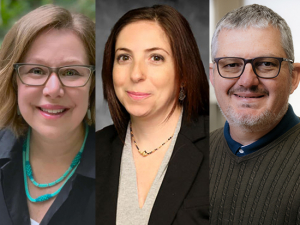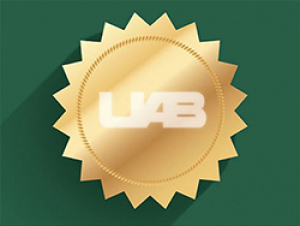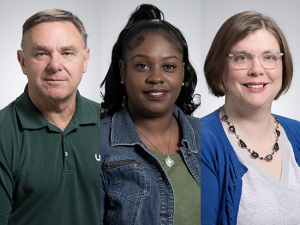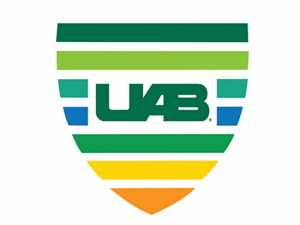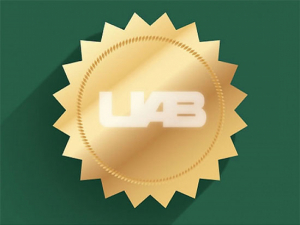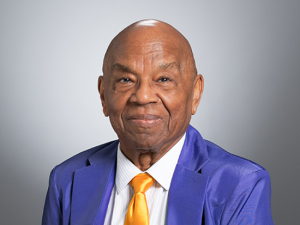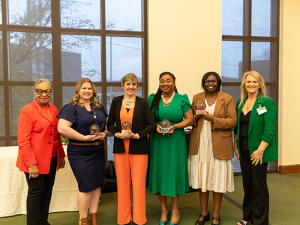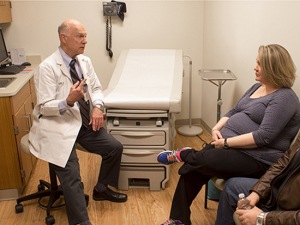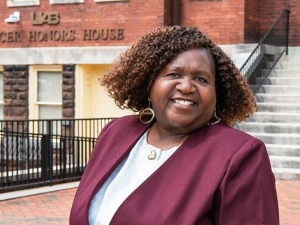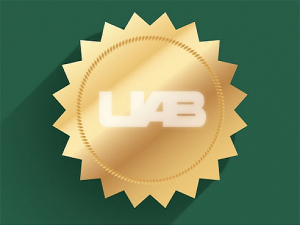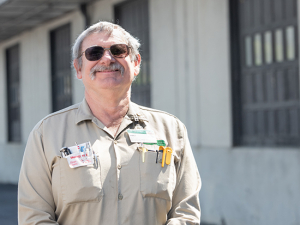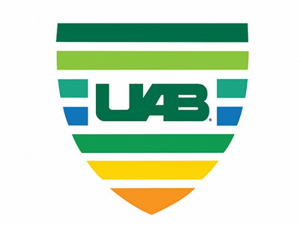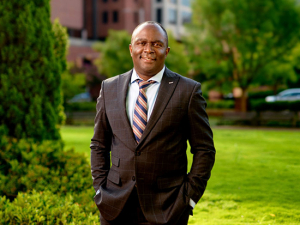Twelve faculty have been selected to receive the President’s Award for Excellence in Teaching, which honors those who have demonstrated exceptional accomplishments in teaching. They will be recognized during the annual Faculty Convocation to be held 4 p.m. Oct. 22 in the Doubletree Hotel.
The 2018 honorees represent each school, the College of Arts and Sciences, the Honors College and the Joint Health Sciences departments.

Ramzi Abou-Arraj
School of DentistryIn his research, Ramzi Abou-Arraj, DDS, focuses on periodontal regeneration and the healing of dental implants, specifically on bioengineering advances in the field. In the classroom, he is known for his thorough preparation and attention to detail. One student says he continues to use notes from his first lecture from Abou-Arraj because “it was filled with so many gems.”
Abou-Arraj also is well-known for working one-on-one with students, even getting down in the weeds with them. One student recalled that Abou-Arraj helped him navigate and explore the Lister Hill Library of the Health Sciences website to find articles for his first presentation during his residency.
He has received numerous awards, including the R. Earl Robinson Periodontal Regeneration Award for an article published in the Journal of Dental Research.

Stella Aslibekyan
Honors CollegeAssociate Professor Stella Aslibekyan, Ph.D., is a cardiovascular epidemiologist with training in statistical genetics and epigenetics. She directs the doctoral program for the Department of Epidemiology, and her research interests include study design and integration of epigenetic data with other -omic and phenotypic data in the context of chronic disease.
Students and seminar attendees remember her as compelling and absorbing. During a University Honors Program seminar in fall 2017, Aslibekyan delivered lectures with titles such as “To Boldly Go Where No Scientist Has Gone Before,” addressing emergence theory in “Star Trek.” For those, she received the program’s Outstanding Instructor award.
“No teacher has ever shaped my thoughts as significantly as Dr. Aslibekyan did in one semester,” one student said. “Not only did she excel as an educator, but she surpassed all others as a role model and provided an invaluable example of a logically minded woman’s success as an academic and person.”

Elizabeth Barstow
Health ProfessionsElizabeth Barstow, Ph.D., is an associate professor who teaches in the Low Vision Certificate program, the entry-level occupational therapy program and in the rehabilitation sciences doctorate program. Later this fall, she’ll begin teaching in the post-professional clinical doctorate in occupational therapy, an online program she developed with a colleague that is the first of its kind in Alabama.
Students say that Barstow is never complacent with her courses or teaching style; she routinely reviews course materials to ensure they are current and explores developing technologies that could enhance student learning, specifically within the low-vision rehabilitation graduate certificate program, for which she earned the Envision Oculus Award in 2017.
“Dr. Barstow’s teaching is at the heart of a program that is considered the preeminent low-vision rehabilitation program for occupational therapists in the world,” a student wrote.

William Brooks
Joint Health SciencesWilliam Brooks, Ph.D., has many irons in the fire: He is an associate professor in the departments of Cell, Developmental and Integrative Biology and Medical Education and directs the Gross Anatomy and Surgical Anatomy labs. Approximately 40 first- and second-year medical students rotate through those labs each year in addition to students of dentistry, optometry, nursing and other health professions.
Colleagues say Brooks is popular with his students, as evidenced by his consistently outstanding teaching evaluations.
“Dr. Brooks is awesome,” one student wrote. “He conveys the main points, explains himself well, speaks clearly and presents the material with examples that will actually help me remember it. I wish he taught more lectures. He’s seriously the best lecturer we’ve ever had.”
Brooks is the recipient of many teaching awards, including five Argus Awards since 2014.

Stacey Cofield
School of Public HealthStacey Cofield, Ph.D., is an associate professor in the Department of Biostatistics and deputy director of the CombiRX Statistical and Data Management Center and the NARCOMS Coordinating Center. She has taught at UAB for 14 years, leading more than 30 courses in biostatistics, public health and graduate biomedical sciences.
Cofield says she knows many students resent the statistics course requirement in pursuit of their degrees, but wants to engage them nonetheless. And that attitude works: One student wrote that Cofield “is an engaging lecturer to say the least, something extremely valuable in a subject such as biostatistics,” and “her ability to make complex statistics understandable and concrete is one of her best teaching qualities.”
Recently, Cofield helped redesign the Overview of Public Health course, collaborating with 10 faculty to develop materials and make the course more engaging and incorporate diverse topics and educational materials that appeal to all students and demonstrate the importance of public health disciplines.

Christopher Edmonds
Collat School of BusinessChristopher Edmonds, Ph.D., is an assistant professor in the Department of Accounting and Finance whose research focuses on the capital market effects of financial reporting and accounting education. Although some of his subjects may be complicated and intricate, Edmonds simplifies the subject and explores the whys and hows of accounting problems to help students understand they can solve a complex problem by breaking into smaller parts.
Students say Edmonds always is ready to make himself available to answer questions and help them better understand course material. One said that Edmonds “is the first instructor I have had who made it his duty to have his students learn and understand the subject” at hand.
Edmonds has received numerous awards, including the Faculty Student Success Award in 2017 and the Provost’s Award for Transformative Online Courses in 2016.

Cassandra Ellis
College of Arts and SciencesCassandra Ellis, Ph.D., an associate professor of English, said she takes inspiration from one of her favorite authors, James Baldwin, who once said, “Literature is indispensable to the world. The world changes according to the way people see it, and if you alter, even by a millimeter, the way a person looks at reality, then you can change it.”
Ellis’ teaching evaluations are consistently positive — she earns an average of 4.3 on a 5-point scale in the Excellent Course category and a 4.4 in the Excellent Instructor category. One student writes that Ellis’ classes are “a lot of work,” but “she’s a great teacher” and “gives you everything you could possibly need to do well and more.”
Ellis has received many awards both at UAB and in the community, including the 2018 Dean’s Award for Excellence in Teaching from the College of Arts and Sciences.

Kristine Hopkins
School of OptometryKristine Hopkins, O.D., has been a member of UAB’s faculty since 1998, excepting three years spent in private practice earlier this decade. She helped found the UAB Eye Care Vision Therapy Clinic two decades ago, which has grown to serve more than 2,400 patients.
An associate professor in the School of Optometry, Hopkins is respected by students and co-workers. “She is considered the expert with whom the other attendings consult for her thoughts on particularly difficult binocular vision cases,” one colleague said. “I feel she is a natural educator. She engages her students in a way that fosters their love of optometry.”
Numerous awards reflect her dedication to classroom teaching. She is a previous recipient of the President’s Award for Excellence in Teaching, which she first received in 2008, and a four-time recipient of the AOSA Excellence in Teaching Award, which is voted on by optometry students.

Jason Kirby
School of EngineeringJason Kirby, Ph.D., is an associate professor of civil, construction and environmental engineering and director of the Sustainable Smart Cities online master’s program at UAB. After witnessing his mother change lives in her work as a high-school teacher for 30 years, Kirby chose to pursue a career in academia rather than industry.
More than one of Kirby’s students note that he promotes a global perspective and students analyze myraid case studies that span the dam rupture in Oroville, California, to contemporary water crises in the developing world.
“Dr. Kirby’s remarkable talent as an educator personifies fundamental traits required for 21st century education: keen commitment to excellence and innovation, mastery of new teaching methods, a global mindset and the ability to communicate complex thoughts to a very diverse group of students,” one wrote.

Susan McMullen
School of NursingSusan McMullen, Ph.D., an associate professor and recognized global expert in anesthesia, joined UAB in 2015. Her students have a 100 percent first-time pass rate for the national certification tests and earn 17 percentage points above the national average.
“The delivery of anesthesia care is both an art and a science, and Dr. McMullan is able to present very challenging subject material to students with mastery,” one student wrote.
Not only does McMullan engage her students in the classroom, she also encourages them to become lifelong learners once they leave it, “influencing these future certified registered nurse anesthetists to continue to develop their knowledge and clinical skills throughout the entirety of their careers,” as another student put it.
“She inspires students to pursue scholarly goals — to investigate, to analyze, to publish.”
In 2016, McMullen was awarded the Dean’s Scholar Award by the School of Nursing and in 2015, the Birmingham Metro Excellence in Nursing Award.

Josephine Prado
School of EducationJosie Prado, Ph.D., an assistant professor of English-learner education, coordinates the decades-long tradition of offering free English conversation classes to the Birmingham community. In those, volunteers and graduate students learning to teach English as a second language provide a trifecta of core UAB values: leveraging knowledge while providing training to students and performing a service for the community.
“Dr. Prado is an incredibly valuable member of the department and community and a very supportive mentor, colleague and friend to students in the program,” one student wrote. “I entered the program as a complete beginner in the teaching profession and, thanks in no small part to Dr. Prado’s guidance, my confidence as a teacher has already improved drastically.”
In 2008 and 2011, Prado was the recipient of the Adolph B. Crew Teaching Award and has redesigned multiple graduate courses at UAB, including EESL 610, “Teaching ESL in a Multicultural Society, “and EESL 657, “Instruction and Assessment for Speaking and Listening.”

Victor Sung
School of MedicineVictor Sung, M.D., an associate professor in the Department of Neurology, says “teaching has been the cornerstone of my career thus far.”
Sung wants to help students in the classroom, and he also wants to ensure students find their way into the right program, which just might be neurology. Sung, who has been the faculty adviser for the Student Interest Group in Neurology since 2015, also is one of only three School of Medicine-trained career advisors in the department.
“He is easily the best lecturer in a classroom setting,” one colleague remarked, “and is ranked by the medical students as one of the top presenters in the neuroscience module at UAB. The feedback from his students has been nothing short of stellar.”
Sung has many awards to his credit. He is the recipient of three Argus Awards for Best Educator in the Neuroscience Module and another for Best Teaching Neurology Resident, and two Caduceus Club Awards, which are given to outstanding overall educators for the entire preclinical years.
